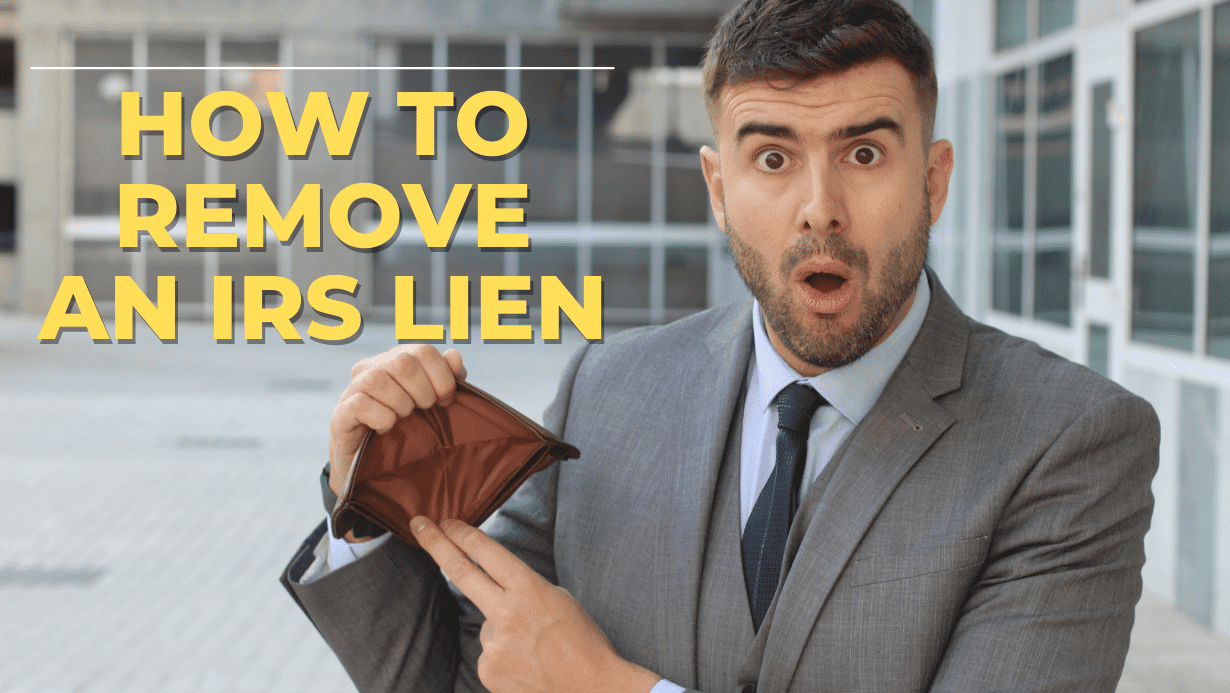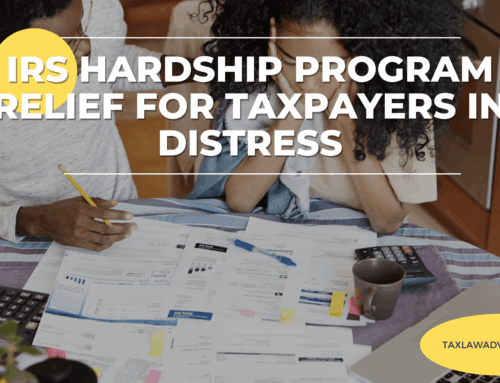The internal revenue service, better known as IRS, is tasked with task collection services in the United States. Individuals who fail to abide by the tax-payment requirements are subject to various penalties, such as the tax lien. This lien allows the IRS to capture your property when you aren’t compliant with your tax obligation.
The IRS evaluates your tax liability, and a notice and demand for payment are issued. The IRS then alerts other creditors that the government is the prioritized legal holder of your property. Furthermore, these rights aren’t limited to your real estate but include your financial and personal property. The impact of a lien is adverse.
If you owe $10,000 or more, Tax Law Advocates can help you. Our team of tax debt attorneys has experience and expertise with The Fresh Start Program, tax debt forgiveness, and Offer-In-Compromise. Call now to find out which tax relief program you qualify for.
Here are a few ways you can remove an IRS lien and get on with your life:
Payment of Your Tax Debt
The tax debt is the cause of the existence of the lien. It makes sense that full payment of your pending tax bill removes the lien, which includes interests and any penalties accrued. This way, the IRS will have no grounds for seizing your property. After you complete payment, the IRS must release the lien in 30 days.
However, if you cannot immediately pay the total amount, it would help if you provide this feedback to the IRS and request an extension of six months. If you need more time than the extension period provides to make full payment, there is room to negotiate a payment plan.
Withdrawal
Withdrawal involves removing the public notice of the tax lien, assuring the creditors that the IRS isn’t competing with them for your property. The agency then issues Form 10916(c), proof of tax issue resolution. However, you are still liable to settle the tax deficit in full.
The fresh start initiative offers some additional options for lien withdrawal if you wish to discuss collection options. These include:
- First, after the lien’s release, the agency may withdraw the notice of the federal tax lien. However, you must comply with personal, business, and informational returns.
- Secondly, withdrawal is allowed if you change your regular installment agreement into a direct debit one. The second option applies to qualified taxpayers with an income. For withdrawal eligibility, the debt should be up to $25,000. Otherwise, you should pay your debt down for a higher deficit until it gets to $25,000, then you become eligible. Also, you should have made three consecutive direct payments.
Discharge of Property
Discharge of property involves dissolving the lien notice of a specific property, allowing the individual to sell the property without limitations. Consequently, the IRS expects you to use the money acquired from the sale to pay your tax debt.
There are provisions in the Internal Revenue Code to know whether you are eligible for a discharge of property and what actions to take.
Subordination
Subordination doesn’t remove the lien but allows other creditors to receive payment before the IRS. This way, you can acquire loans that can help you reduce your tax debt.
Most subordinations occur when the IRS places a lien on a property with a defined value. Upon a mutual agreement with the creditor, the IRS may deem it best and faster to let the creditor sell the seized asset, then collect the tax debt from you.
Appeal the Lien
If you feel the lien was a mistake, you can appeal against the IRS on a predefined timeline, usually 30 days. This appeal is valid when you fulfill the following conditions:
- Full payment of the tax deficit.
- Filing of the tax lien occurred while you were bankrupt.
- The lien resulted from a filing and processing error.
- You weren’t allowed to dispute the lien claim.
- When you request innocent spouse relief.
- The statute for limitations of ten years has expired.
Conclusion
Everyone has to pay taxes. If you ignore this duty, the IRS can catch up to you. It would be best to uphold your responsibility to avoid debt accumulation and bad credit reports. You should make tax payments of the right amount and at the right time. Pay attention to IRS notices and always respond to them.
When a lien is issued, don’t panic! Contact us immediately to find the best solution for your situation.






